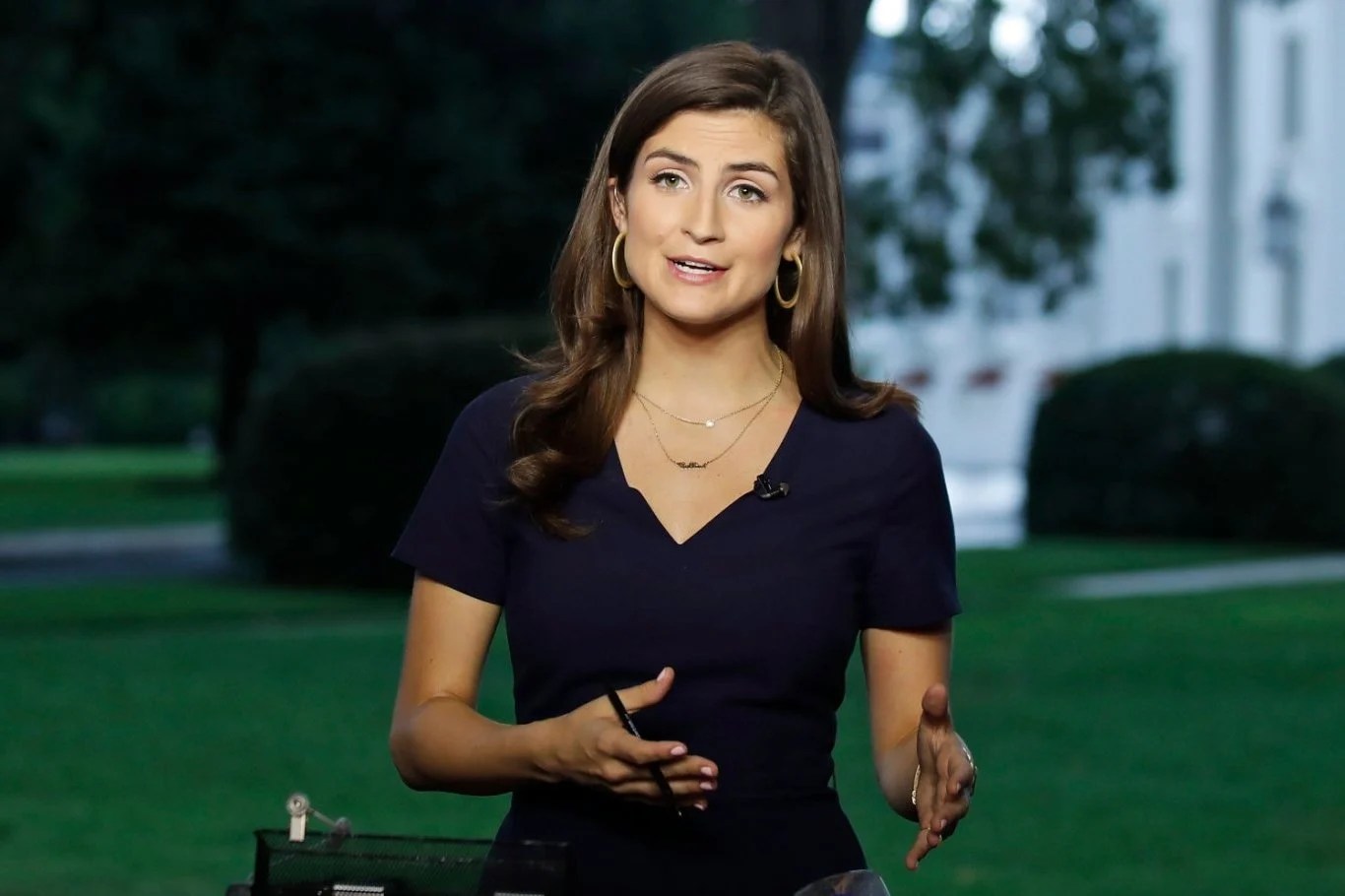The recent news surrounding Kaitlan Collins fired has stirred significant discussions across media platforms and among viewers. As an established journalist, Kaitlan Collins has made a name for herself in political reporting, but the circumstances of her departure have raised eyebrows and questions about the state of journalism today. This article will delve into the reasons behind her firing, the impact it has on the media landscape, and what it means for the future of political journalism.
In this article, we will explore the timeline of events leading up to Kaitlan Collins' firing, the reactions from the public and her colleagues, and the broader implications for media integrity and accountability. As we seek to uncover the truth behind this incident, we will also look at Collins' career and contributions to journalism, highlighting her expertise and authority in the field.
Furthermore, we will analyze the effects of such controversies on the audience's trust in media outlets. As viewers, understanding the factors that contribute to these decisions is crucial in navigating the complexities of news consumption today. Join us as we unpack the details surrounding Kaitlan Collins' firing and offer insights into the evolving landscape of political journalism.
Table of Contents
- Biography of Kaitlan Collins
- Reasons Behind Kaitlan Collins Fired
- Public Reaction to the Firing
- Impact on Media Integrity
- The Future of Political Journalism
- Conclusion
- Sources
Biography of Kaitlan Collins
| Name | Kaitlan Collins |
|---|---|
| Date of Birth | April 7, 1992 |
| Education | University of Alabama (B.A. in Political Science) |
| Occupation | Journalist |
| Known For | Political Reporting, White House Correspondent |
Reasons Behind Kaitlan Collins Fired
The decision to terminate Kaitlan Collins has been attributed to several factors, which have been the subject of much speculation. Here are some of the key reasons that have emerged:
- Editorial Differences: There were reported disagreements between Collins and her superiors regarding coverage and editorial direction.
- Controversial Interviews: Collins' approach during high-stakes interviews sometimes drew criticism, potentially leading to tensions within the network.
- Network Policies: Changes in management and shifts in network policies regarding political reporting may have influenced the decision.
Public Reaction to the Firing
The news of Kaitlan Collins' firing sparked immediate reactions on social media and in the news cycle. Many of her supporters expressed shock and disappointment, citing her as a talented journalist dedicated to her craft. Key reactions include:
- Support from Colleagues: Many journalists and political analysts voiced their support for Collins, emphasizing her skills and contributions to journalism.
- Criticism of Network Practices: Critics of the media company raised concerns about transparency and the fair treatment of journalists.
- Public Outcry: Viewers expressed their dissatisfaction with the firing, questioning the implications for journalistic integrity.
Impact on Media Integrity
Kaitlan Collins' firing raises important questions about media integrity. Some of the potential impacts include:
- Trust Issues: Incidents like this can erode public trust in media outlets, making it difficult for consumers to discern credible reporting.
- Effect on Journalists: Journalists may feel pressured to conform to management expectations, potentially compromising their ability to report freely and accurately.
- Shift in Coverage: Networks may become more cautious in their reporting, leading to less critical coverage of political figures.
The Future of Political Journalism
The aftermath of Kaitlan Collins' firing prompts a reevaluation of the future of political journalism. Key considerations include:
- Emerging Platforms: The rise of independent media and online platforms may provide alternative avenues for journalists to express their views without corporate constraints.
- Demand for Accountability: Audiences may increasingly demand transparency and accountability from media outlets, pushing for better practices in journalism.
- New Generations of Journalists: The next generation of journalists may adapt to these challenges by prioritizing integrity and ethics in their reporting.
Conclusion
In conclusion, the circumstances surrounding Kaitlan Collins fired have highlighted critical issues within the media landscape. As we reflect on her career and contributions, it is essential to consider the broader implications for journalism and public trust. As consumers of news, we must remain vigilant and advocate for transparency and accountability in media practices.
We encourage readers to share their thoughts on this topic in the comments below and explore other articles on our site to stay informed about the evolving landscape of journalism.
Sources
For further reading on the topic, consider reviewing these trusted sources:
You Might Also Like
Everything You Need To Know About Hdhub4u In 2024: Your Ultimate Guide To StreamingHow Many Tattoos Does Taylor Swift Have? Unveiling The Meaning Behind Her Ink
Blake Fielder-Civil, Pete Doherty, And Amy Winehouse: A Deep Dive Into The Turbulent Lives Of Rock's Most Notorious Trio
Are Aries And Capricorn Good Friends? Exploring The Dynamic Friendship Between These Zodiac Signs
Ultimate Guide To Vegamovies 2.0: Everything You Need To Know About The Popular Streaming Platform
Article Recommendations
- Is Steve Harvey A Trump Supporter
- Tori Spelling Children Ages
- Brian Bosworth
- Zach And Jeremy Roloff Feud
- Justin Fields Wife
- Is Baron Trump Autistic
- Mothers Warmth
- Sam Reid Spouse
- Toby Keiths Car Collection
- Tyler Perry Spouse


